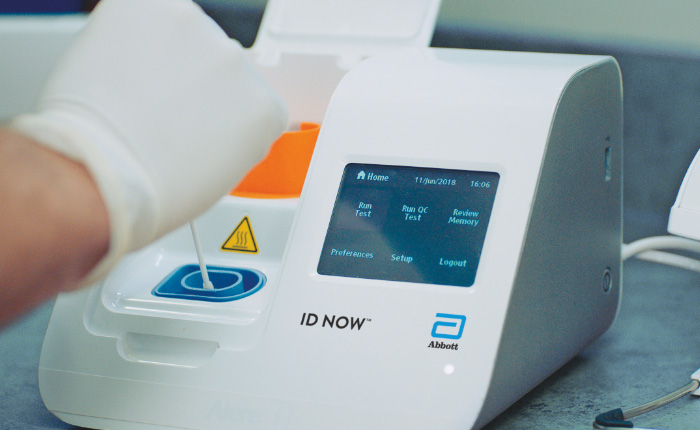Public health officials are introducing rapid testing for asymptomatic personal care home staff working in three licensed personal care homes across the province as part of a pilot project around testing in long-term care facilities.
“Protecting the health of our most vulnerable Manitobans is a top priority. Since the spring, we have introduced many precautions to screen staff and residents within our personal care homes, and to isolate and test anyone who shows symptoms or might have been exposed to COVID-19,” said Health, Seniors and Active Living Minister Cameron Friesen. “This pilot project will expand the asymptomatic testing that is already underway in personal care homes by testing staff who do not have any symptoms and is the first step in plans for an expansion of this work to other sites in the weeks ahead.”
Asymptomatic testing is a tool already used in personal care homes that have confirmed cases and/or outbreaks of COVID-19. When a positive case of COVID-19 is identified, all residents and staff who are identified as contacts are tested, whether or not they have symptoms.
The pilot will implement broader asymptomatic surveillance testing (testing where there are no symptoms and no known exposure) for staff working in the selected facilities. Staff will be asked to participate on a voluntary basis, with testing performed once a week.
The pilot project will use Abbott Panbio COVID-19 rapid antigen test, which provides a result in approximately 20 minutes. Staff at the participating sites will be trained to perform the test using the equipment. Results received as ‘positive’ will be reported to public health as probable cases and will be confirmed by a lab-based test.
The three sites chosen for the pilot project are Donwood Manor and Deer Lodge Centre in Winnipeg and Country Meadows Personal Care Home in Neepawa in the Prairie Mountain Health region.
“These sites were chosen because of the size of their workforce and their proximity to laboratory testing sites, which will be used to confirm probably positive test results,” said Friesen. “The pilot project will help us establish the most appropriate application of this expanded sentinel testing as well as training and deployment processes that will support broader availability if the pilot proves successful.”
The minister noted the project will also allow officials to test the effectiveness of the new rapid testing equipment to better understand how it can be deployed and used in other settings.
Testing is expected to begin on Dec. 21 and will be conducted for four weeks at each site, the minister added. Following analysis of the results, it is expected the project will be expanded to other licensed personal care homes in the weeks ahead, he added.
Other ways Manitoba is keeping PCHs safe include:
- enhancing monitoring of PCH operators;
- enacting a rapid response team ready to provide around the clock, quick assessment and treatment of residents;
- deploying the Community IV Program (CIVP) to provide hydration to residents; and
- arranging for workers from Canadian Red Cross to provide companionship, redirection and general assistance to health-care workers.
For up-to-date information on COVID-19, visit manitoba.ca.


